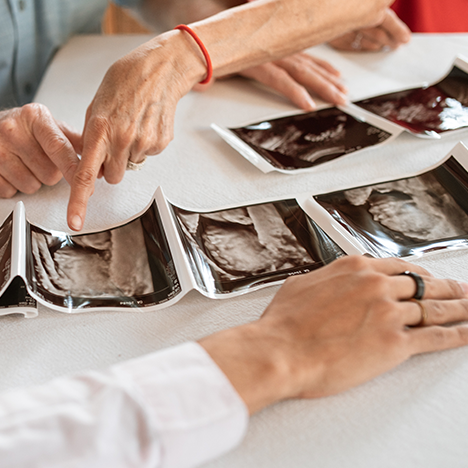Ensuring your voice is heard is never more important than when receiving maternity care. If you don’t feel like concerns are being taken seriously by your healthcare provider, we have provided the tools you need to advocate for yourself and your baby.

Medical negligence
What does the East Kent maternity report mean?
Litigation midwife explains what the report into care at East Kent maternity wards means, and its consequences.
A report launched in October 2022 detailed the failing of 45 babies, over an eleven year period, within maternity and prenatal care in the East Kent Hospitals NHS Trust.
Now further maternity cases are being investigated within the hospital trust, and there is also an ongoing investigation into maternity care within the Nottingham University NHS Trust.
Several failings
The independent report from Dr Kirkup, who had previously investigated the failings of Morecombe Bay NHS Trust in 2015, found that there had be several failings across two hospitals within the trust.
Dr Kirkup’s report detailed “catastrophic failings” within the maternity units, several of which fall under medical and childbirth negligence where pregnancy issues were ignored, and if addressed appropriately, babies lives would have been saved.
The report details that the origins of harm identified lie in “failures of teamworking, professionalism, compassion and listening,” with reports of bullying and harassment in the workplace as well as the negligent care, with blame being placed on junior staff members, when possible.
A pattern of poor care
The investigation launched in March 2021 following the deaths of more than a dozen newborns at the Queen Elizabeth the Queen Mother Hospital in Margate and the William Harvey Hospital in Ashford. The cases looked at in the report date back from 2012 when problems first arose following the death of Harry Hallingan. This was following inquests and other investigations into cases of child death within the trusts that showed a pattern of poor care, with one instance of a newborns death being blamed on the mother
Throughout the time period, the Care Quality Commission rated the trust’s maternity care as inadequate. They've since released a report, following an inspection in January 2023, that East Kent Hospitals NHS Trust must make immediate improvements to it's maternity services.
The Royal College of Obstetricians and Gynecologists (RCOG)
The Royal College of Obstetricians and Gynecologists (RCOG) also raised concerns about the inadequate care within the trust in 2015. Some of the issues flags by RCOG included inconsistent adherence to national standards, poor governance following serious incidents and poor staff working culture. It was discovered during an inquest in 2020 that 21 out of the 23 recommendations made by the RCOG had not been completed.
Helen Stanley, litigation midwife at Slater and Gordon said:
“The primary reason people book for maternity care is to receive support, understanding, knowledge and advice to empower them to achieve a birth that is safe and meets their specialist requirements and wishes. These services are mostly provided by midwives and obstetricians. At the end of their experience they hope and plan for a baby that is healthy and a mum who is well, ready for the journey of parenthood and all that will bring to them.
For families who have experienced the death of their baby, or when they’re babies have suffered harm, for example a brain injury which has led to cerebral palsy, or a physical or psychological maternal injury, the outcome is devastating and the effects last their entire lifetime. It is not what they signed up for when they entrusted the NHS with their pregnancy journey.”
How we can help
At Slater and Gordon we have a dedicated team of legal experts and midwives with years of experience of working on maternity negligence claims. Our specialists within this area can support you in understanding the negligent care that you and/or your baby experienced, clearly detailing what your next steps are and how we can fight on your behalf throughout your claim.
Our team includes midwives who are NMC registered and fully up to date on all the national standards and guidelines referred to in Dr Kirkup’s report. This means we can provide you with answers to your queries as soon as possible to help you process what has happened. Our midwives bring a wealth of knowledge and experience to not only support our solicitors as a case progresses, but also to support the families we care for throughout the process. You can find out more on how we support those who have lost their baby here.
For more information, call us on 0330 041 5869 or contact us online to speak to a member of our team.



Often, when women approach healthcare professionals with concerns about their health, they’re downplayed or ignored, which can have life-changing implications. In fact, 52% of women feel like a “number” when seeking help from their GP. We have provided the tools you need to advocate for yourself.

Spinal cord injuries are extremely serious and can be devastating for the sufferer and their family. Lives can be changed forever, and you need immediate support from a specialist solicitor. Slater and Gordon is one of the UK's most experienced spinal cord injury law firms.